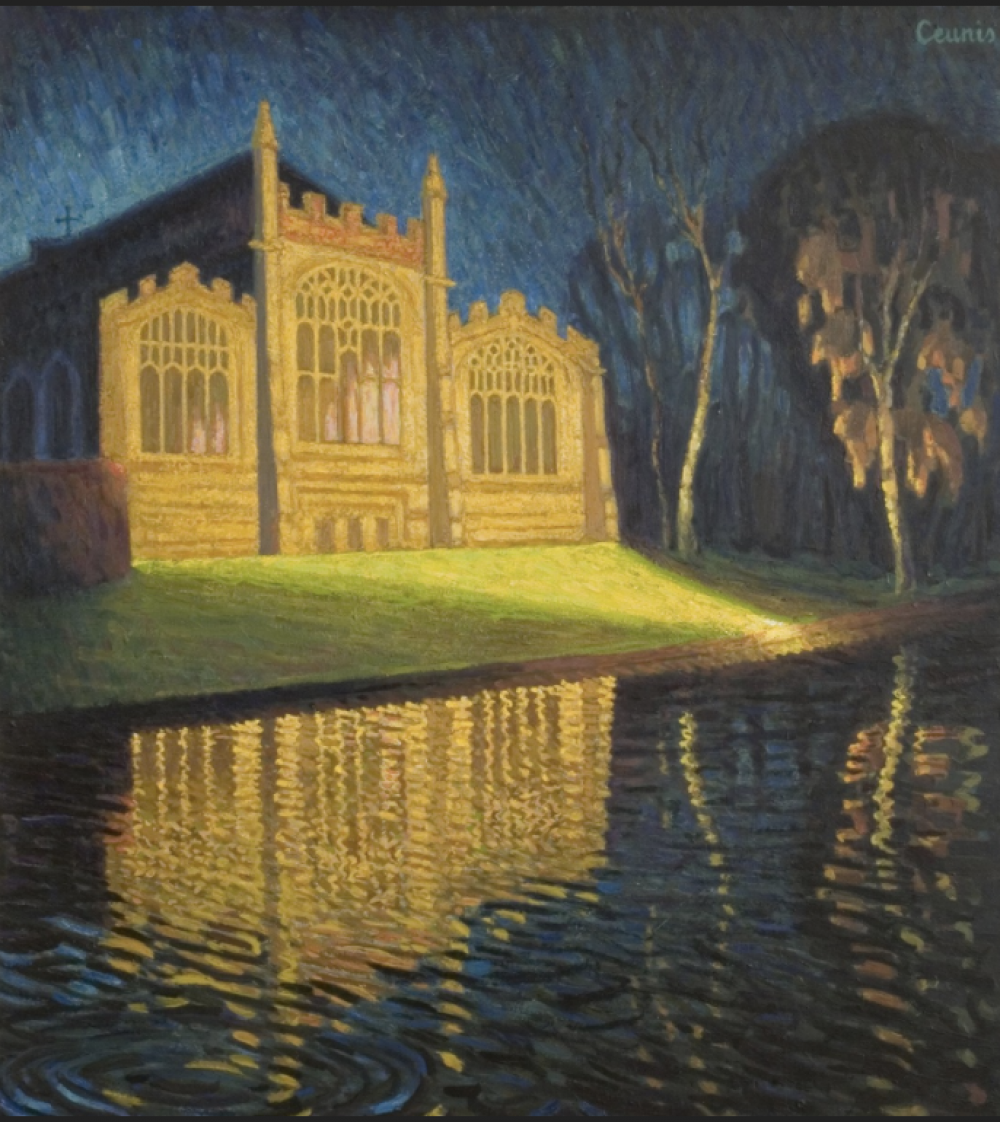Gerard Ceunis left Belgium, with his wife Alice and their infant daughter Vanna, in 1914, their departure prompted by the German invasion of their country. They settled in England, eventually making their home in Hitchin, Hertfordshire.

Ghent before the First World War (via https://stamgent.be/en/digi-expos/gent-bezette-stad)
As I noted in earlier post, the Ceunis family had been living in Geraard Mercatorstraat in Ghent since 1912, having moved there from Baudelostraat in 1910.

Geraard Mercatorstraat in Ghent today (photograph via google.co.uk/maps)
Germany invaded Belgium on 4th August 1914, following the neutral country’s refusal to allow passage across its territory to German troops. According to the website of the Stadsmuseum Gent:
Ghent escaped the worst of the invasion. The city didn’t suffer severe shell damage and, in fact, came out of the conflict relatively unscathed. However, this didn’t mean that the war was without its consequences for the people of Ghent. For them, like the great majority of Belgians, the war years meant four years of occupation, misery, hunger and increasingly difficult living conditions.
What was it that precipitated the Ceunis family’s decision to flee their homeland and to take up residence in England? In my recent conversation with Tessa Cathcart, Gerard Ceunis’ granddaughter, she suggested that their house in Ghent may have been bombed. However, the brief biography of Ceunis included in Raymond Vervliet’s collection of literary manifestos from this period (see this post) points to an alternative, though not necessarily incompatible, explanation. The original Dutch version includes this sentence:
In het begin van de Eerste Wereldoorlog week hij, als afgemonsterd lid van de burgerwacht, uit naar Engeland waar hij fortuin maakte met een confectiezaak.
A literal English translation of this would read as follows: ‘At the beginning of World War I, as a former member of the vigilante, he fled to England where he made a fortune with a clothing store.’ However, burgerwacht, translated here as ‘vigilante,’ might more accurately be construed as militia, or civil guard. Interestingly, I’ve discovered that George Sarton, the founder and leading light of the Reiner Leven or ‘Purer Living’ student movement, to which Gerard Ceunis belonged, was a member of the Civil Guard in Ghent, and that this apparently placed him in great danger following the German invasion. Sarton, who went on to become a leading historian of science, married the English artist and designer Mabel Elwes. They lived in the village of Wondelgem, outside Ghent, where their daughter, the future poet and novelist May Sarton, was born. In her memoir I Knew a Phoenix: Sketches for an Autobiography, May Sarton writes about the period leading up to the German invasion:
The Civil Guard, to which my father at one time belonged, drilled now and then on the village green, and took uniforms out of mothballs. Sometime in July they were issued ancient muskets. But no one really believed in that impossible war as a reality. In any case, they reminded each other, Belgium itself was neutral. Nothing could happen here.
On August second, the Germans demanded free passage, were refused, and on August third the Wehrmacht marched in in their spiked helmets. In the little village of Wondelgem church bells rang the tocsin; the postman delivered mobilization orders. My father, though no longer an official member of the Civil Guard got out his heavy Civil Guard coat, took down the old musket, and reported for patrol duty. He was set to guard the railway intersection. There, alone, a lantern in one hand, his gun in the other, he paced up and down all night hoping that the German army would not come hurtling down the track. Fortunately, they did not.

German soldiers in Ghent following the 1914 invasion (via https://stamgent.be/en/digi-expos/gent-bezette-stad)
However, once the invasion finally happened, the Sartons’ house in Wondelgem was commandeered by the Wehrmacht:
Twenty-six officers and men were billeted on the place…One officer, looking over the quarters, walked through while my mother’s heart nearly stopped beating as she suddenly remembered the Civil Guard coat hanging on the back of a door. At this time members of the Civil Guard were treated as spies and shot. But she was able to push the door back and stand against it, and that night the coat was buried in the garden.
The Sartons eventually managed to escape from Belgium, staying for a brief time with Mabel’s relatives in England, before sailing for America, where they finally settled.

May Sarton and her father George Sarton. Photograph taken by Mabel Sarton in 1929 (from I Knew a Phoenix)
Did Gerard Ceunis suffer from similar fears that his previous membership of the Civil Guard (if indeed he was a member) might place him in danger? And did this contribute to his decision to leave Belgium, accompanied, like Sarton, by his wife and small child?
Incidentally, May Sarton’s beautifully-written memoir provides a fascinating insight into the world of her parents’ youth, and includes some interesting information about the network of friends who made up Reiner Leven and their female counterparts, De Flinken. I shall have more to say about the book in a future post.
